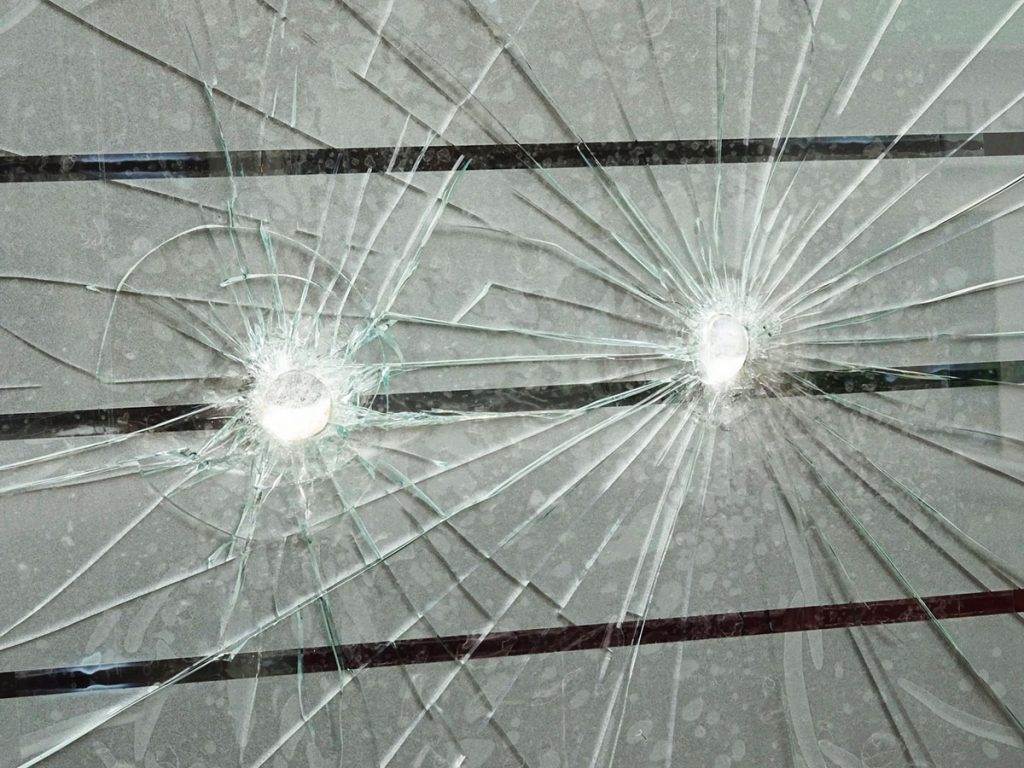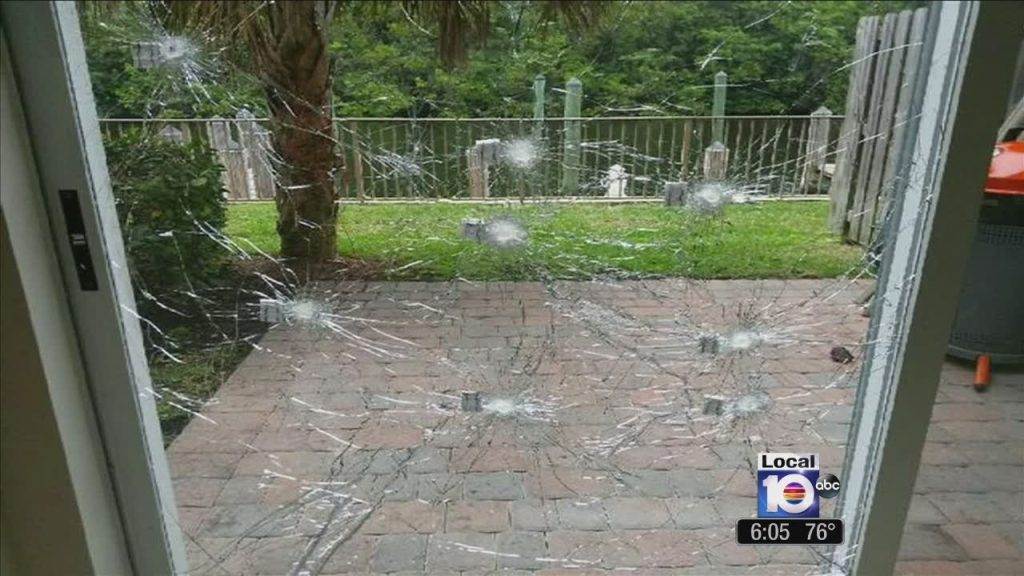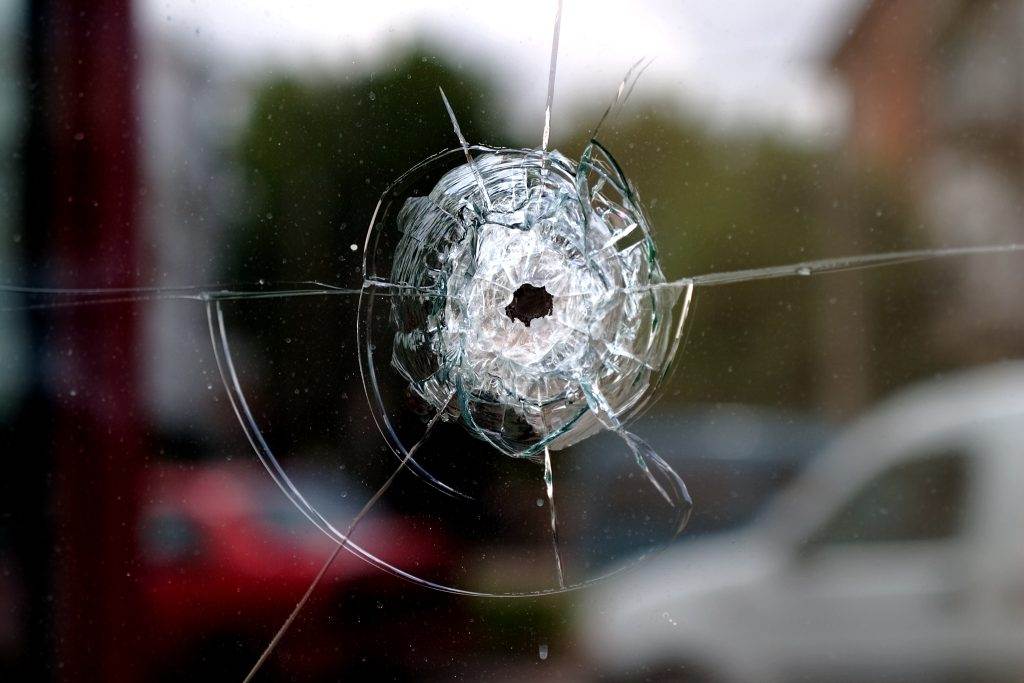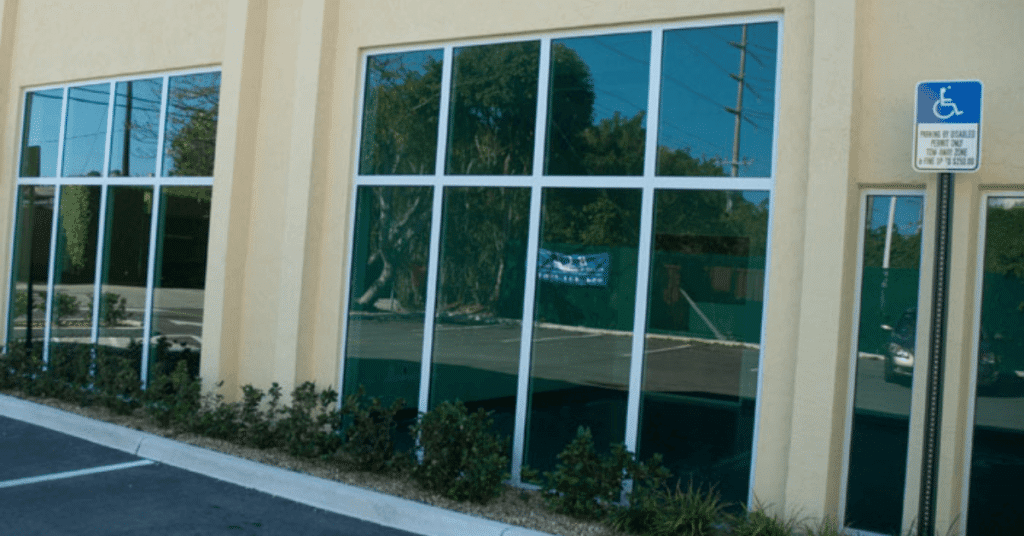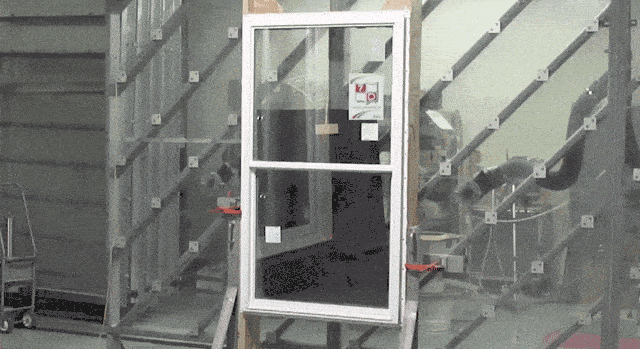Glass plays an essential role in our everyday lives, not only as a material that allows us to see through it but also as a form of protection. However, have you ever wondered what sets bulletproof glass apart from hurricane glass? Both aim to provide safety, but their construction and purpose are distinctly different. In the fascinating realm of glass engineering, understanding the disparity between these two forms of protection can shed light on the ingenuity and versatility of such a commonly used material.
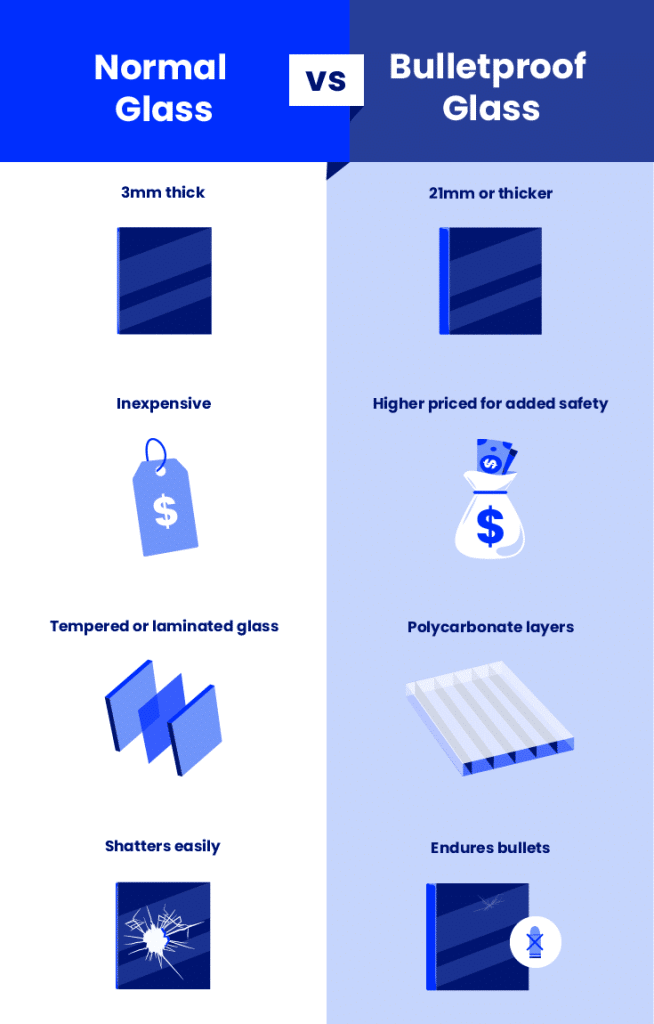
This image is property of armormax.com.
Composition
Bulletproof Glass
bulletproof glass, also known as ballistic glass or transparent armor, is a specialized type of glass that is designed to resist penetration from bullets and other projectiles. It is composed of multiple layers of glass and plastic interlayers that are bonded together to create a strong and durable composite material. The layers are typically made of polycarbonate or laminated glass, which have high strength and impact resistance properties.
Hurricane Glass
Hurricane glass, on the other hand, is specifically engineered to withstand the high winds and impact of hurricanes and other strong storms. It is made using a combination of reinforced glass and interlayers that provide added strength and resistance against flying debris and wind pressure. The composition of hurricane glass may vary depending on the manufacturer, but it often includes a combination of tempered glass, laminated glass, and reinforced interlayers.
Strength
Bulletproof Glass
Bulletproof glass is designed to provide protection against ballistic threats, such as bullets and projectiles. It is engineered to absorb and disperse the energy from impacts, preventing penetration and minimizing the risk of injury or damage. The strength of bulletproof glass is measured in terms of resistance to various types of firearms and ammunition. It is classified into different levels, such as UL 752 and EN 1063 standards, based on the level of protection it offers against different caliber bullets.
Hurricane Glass
The strength of hurricane glass lies in its ability to withstand high winds and impact from flying debris. It is built to resist the forces exerted by hurricane winds, which can reach speeds of over 100 miles per hour (160 km/h) or more. Hurricane glass is tested and certified to meet specific standards, such as ASTM International’s Impact Resistance Standard, to ensure its strength and durability in extreme weather conditions. It is designed to remain intact even if the glass breaks, providing a layer of protection against the elements.
Impact Resistance
Bulletproof Glass
Bulletproof glass is highly resistant to impact and can withstand multiple blows without breaking or shattering. Its multi-layered composition, including the plastic interlayers, allows it to absorb and distribute the force of impacts, preventing penetration. Even when the outer layers of glass may crack, the inner layers remain intact, maintaining the integrity and protective capabilities of the glass.
Hurricane Glass
Similarly, hurricane glass is specifically engineered to be impact-resistant. It is designed to withstand the impact of debris propelled by hurricane-force winds. The laminated and reinforced layers of the glass help to absorb and disperse the energy from impacts, minimizing the risk of shattering or breakage. This impact resistance is crucial in protecting homes and buildings from flying debris during severe storms.
Purpose
Bulletproof Glass
The primary purpose of bulletproof glass is to provide protection against ballistic threats, such as shootings or armed attacks. It is commonly used in high-security environments, such as banks, government buildings, embassies, and military vehicles. Bulletproof glass offers a level of security and safety by preventing unauthorized access, reducing the risk of injury, and providing peace of mind to those within the protected area.
Hurricane Glass
The main purpose of hurricane glass is to protect homes and buildings from the destructive forces of hurricanes and other severe storms. It provides a layer of defense against high winds and flying debris, ensuring the safety of occupants and minimizing property damage. Installing hurricane glass in windows and doors adds an extra level of security and peace of mind, particularly in regions prone to tropical storms and hurricanes.
This image is property of qph.cf2.quoracdn.net.
Types
Bulletproof Glass
There are different types of bulletproof glass available, each designed to provide varying levels of protection. The most common types include laminated glass, polycarbonate glass, and acrylic glass. Laminated glass consists of multiple layers of glass and interlayers, offering excellent clarity and resistance to penetration. Polycarbonate glass, often referred to as “glass-clad polycarbonate,” combines the strength of polycarbonate with the aesthetics of glass. Acrylic glass, also known as “plexiglass” or “acrylic sheet,” is lightweight and provides good impact resistance.
Hurricane Glass
Hurricane glass can be categorized into several types, typically based on the combination of glass and reinforcement materials used. Common types include laminated hurricane glass, tempered hurricane glass, and impact-resistant glass. Laminated hurricane glass consists of multiple layers of glass and interlayers, ensuring high impact resistance. Tempered hurricane glass is heat-treated to increase its strength and durability, making it less likely to break upon impact. Impact-resistant glass is specially designed to meet hurricane codes and withstand the impact of windborne debris.
Thickness
Bulletproof Glass
The thickness of bulletproof glass varies depending on the required level of protection and the type of threats it needs to withstand. Thicker glass with additional layers offers higher levels of resistance against gunfire and projectiles. The thickness of bulletproof glass can range from around 20mm to over 100mm, depending on the specific requirements and safety standards.
Hurricane Glass
The thickness of hurricane glass also varies depending on the level of protection needed and the specific requirements of the region or building codes. Generally, hurricane glass tends to be thicker than standard glass, with typical thicknesses ranging from around 5mm to 12mm or more. The exact thickness will depend on factors such as the wind zone rating, the building’s proximity to the coast, and the level of protection desired.
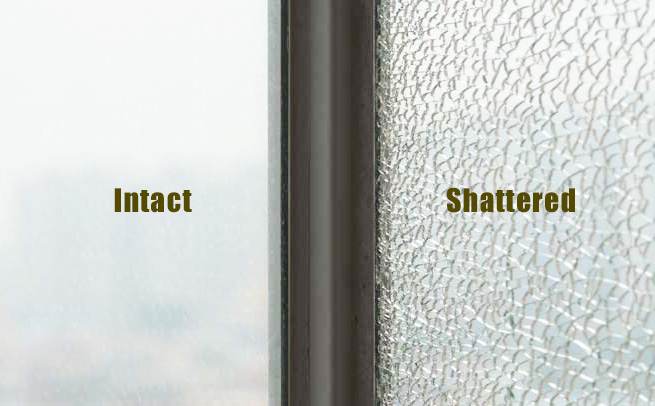
This image is property of en.tdtebo.com.
Cost
Bulletproof Glass
Bulletproof glass is generally more expensive than standard glass due to its specialized design and manufacturing process. The cost of bulletproof glass can vary greatly depending on factors such as the type of glass used, the level of protection required, the size of the installation, and additional features like tinting or coatings. Prices for bulletproof glass can range from a few hundred dollars per square foot to thousands of dollars per square foot.
Hurricane Glass
The cost of hurricane glass is also influenced by various factors, including the type and thickness of the glass, the size of the installation, and any additional features. Hurricane glass is typically more expensive than regular glass due to its added strength and impact resistance. However, the cost of hurricane glass can vary significantly depending on the specific product, supplier, and region. Prices for hurricane glass can range from around $20 to $50 per square foot or more.
Installation
Bulletproof Glass
The installation of bulletproof glass requires specialized knowledge and expertise due to the unique nature of the material. It is typically a complex process that involves careful measurement, precise cutting, and secure installation. Bulletproof glass installations are usually performed by professionals who have experience working with ballistic-resistant materials. The glass panels are custom-made to fit the specific dimensions and requirements of the installation area, ensuring a precise and secure fit.
Hurricane Glass
The installation of hurricane glass follows similar principles to that of regular glass installations. It requires proper measurement, cutting, and sealing to ensure a secure fit and optimal performance. However, due to the added strength and impact resistance of hurricane glass, extra precautions may be necessary during installation. This could include reinforcement of the surrounding frame and proper anchoring of the glass to prevent it from dislodging during high winds. It is recommended to hire experienced professionals for the installation of hurricane glass to ensure proper fit and performance.
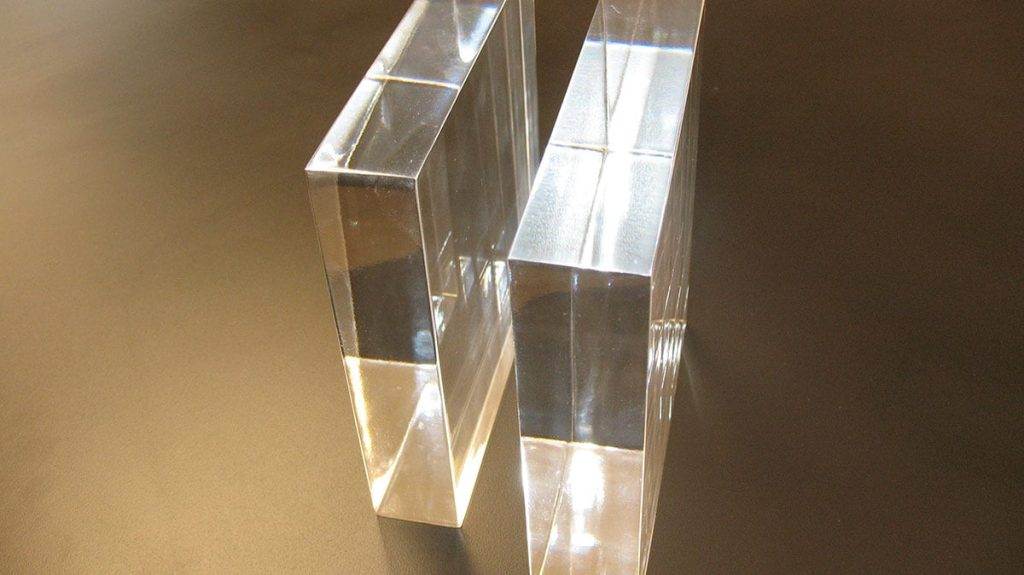
This image is property of www.tssbulletproof.com.
Applications
Bulletproof Glass
Bulletproof glass finds a wide range of applications in various industries and environments that require enhanced security and protection. Some common applications of bulletproof glass include bank teller windows, police stations, armored vehicles, government buildings, embassies, military installations, and high-profile executive offices. It provides a crucial layer of security for individuals and assets, helping to prevent unauthorized access and potential harm.
Hurricane Glass
The primary application of hurricane glass is to protect homes, buildings, and other structures in hurricane-prone regions. It is commonly installed in windows, doors, and other openings that are vulnerable to wind and debris impact. Hurricane glass is also used in commercial and public buildings located in hurricane zones, such as hotels, schools, hospitals, and government facilities. Its ability to withstand severe weather conditions makes it an essential component for ensuring the safety and structural integrity of buildings.
Maintenance
Bulletproof Glass
Maintaining bulletproof glass is relatively straightforward. Regular cleaning with mild, non-abrasive glass cleaners and a soft cloth is typically sufficient to keep it in good condition. It is important to avoid using abrasive materials or harsh chemicals that could damage the glass or its protective layers. Periodic inspections should be conducted to check for any signs of damage or wear and tear, such as cracks or delamination of the interlayers. Any damaged or compromised areas should be repaired or replaced promptly to maintain the effectiveness of the bulletproof glass.
Hurricane Glass
The maintenance of hurricane glass is similar to that of regular glass windows. Routine cleaning with mild soap or glass cleaner and a soft cloth is typically recommended to keep the glass clean and free from debris. Inspections should be conducted periodically to check for any damage, such as cracks or chips, which should be repaired promptly to ensure the continued strength and integrity of the glass. Additionally, it is essential to follow the manufacturer’s recommendations for maintaining the structural elements surrounding the glass, such as frames, seals, and anchors, to ensure the optimal performance of the hurricane glass system.
In conclusion, while both bulletproof and hurricane glass share certain characteristics, they serve different purposes and are designed to withstand different types of threats. Bulletproof glass prioritizes protection against ballistic threats, offering resistance to gunfire and projectiles and providing security in high-risk environments. On the other hand, hurricane glass is engineered to withstand the high winds and impact of severe storms, protecting buildings and occupants from flying debris and wind pressure. Understanding the distinctions between these two specialized types of glass is crucial when considering the appropriate choice for specific applications and ensuring the safety and security of individuals and assets.

This image is property of www.tssbulletproof.com.

